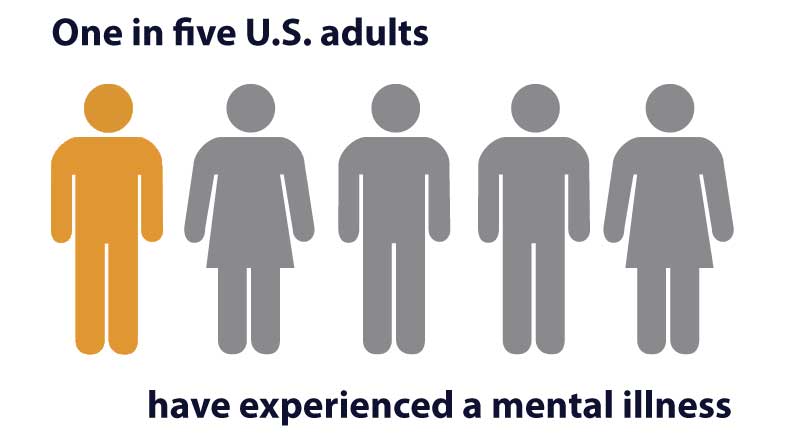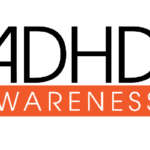How Is Mental Illness Diagnosed?

Mental illness is diagnosed by experts like psychiatrists, psychologists, or trained clinical social workers.
Feeling mental health struggles is hard, but remember, you’re not alone. Many people around the world face these challenges. We’re here to help you at every step, from your first visit to treatment.
What is Mental Illness?
Mental disorders (or mental illnesses) are conditions that affect a person’s thinking, feeling, mood, or behavior that causes the person distress and difficulty functioning. There are more than 200 classified types of mental illness. Mental illness are conditions including but not limited to: depression, anxiety, bipolar disorder, social anxiety, obsessive-compulsive disorder, PTSD, and schizophrenia.

Facts About Mental Illness
- A lot of people in the U.S. have mental illnesses.
- Almost 1 in 5 adults in the U.S. face mental health issues.
- About half of all U.S. people will have a mental illness at some point.
- Mental health problems can be short-term or last a long time.
According to the National Alliance on Mental Health, half of all lifetime mental illness begins by age 14 and three-quarters by age 24.
How is mental illness diagnosed?
Diagnosing mental illness is important. It might take a few visits to your doctor. Once they figure out what’s going on, they can help you feel better.
Novum Psychiatry specializes in diagnosing and treating a range of mental health conditions. These include anxiety, depression, obsessive-compulsive disorder (OCD), post-traumatic stress disorder (PTSD), trauma, bipolar disorder, attention deficit hyperactivity disorder (ADHD), panic disorder, and social anxiety disorder. Each of these conditions has unique characteristics but all can be managed with the right help and care.
Remember, having a mental illness doesn’t mean you’re weak. It’s not something you can just get over.
Steps to Diagnose a Mental Illness
1. First Visit
Your first visit will involve talking about your feelings and health. It’s important to be honest. This helps your doctor understand you better. They might also do some tests. But there’s no blood test for mental illness. Instead, they’ll listen to your experiences.
2. Making a Diagnosis
Your provider will conduct a comprehensive psychiatric evaluation. This involves a detailed discussion about your symptoms, personal and family medical history, and any medications you’re currently taking.
Depending on your symptoms, you might also undergo psychological testing. This evaluation, guided by the criteria in diagnostic manuals like the DSM-5 (Diagnostic and Statistical Manual of Mental Disorders, Fifth Edition), will help your psychiatrist identify if you have a mental health disorder. The DSM-5 is a widely-used manual that provides a common language and standard criteria for the classification of mental disorders.
A key aspect of the diagnostic process is the differential diagnosis.
This is a method used by psychiatrists to distinguish between conditions that may have similar symptoms.
For instance, anxiety and depression can both result in difficulty concentrating, but the context, history, and other accompanying symptoms may point more clearly to one diagnosis over the other. It’s a detailed and careful process of elimination that helps to ensure an accurate diagnosis.
The goal is to tailor the treatment to the individual’s specific needs, and that begins with an accurate and precise diagnosis. Differential diagnosis is an integral part of the assessment and treatment planning process in psychiatry.
3. Follow-up Visits and Monitoring
Psychiatric care doesn’t stop at diagnosis. It’s a continuous process that involves monitoring your symptoms and adjusting your treatment plan as needed.
4. Treatment
Most mental illnesses cannot be cured, but they can usually be treated to minimize symptoms and maximize the person’s functioning and quality of life. Treatment typically involves medications, psychotherapy (talk therapy), or both.
Our Experienced Team of Psychiatrists Can Help!
We know that taking the first step can be difficult.
Our highly-trained psychiatrists and therapists offer a comprehensive and confidential approach to private, outpatient psychiatric care. Whether this is your first time seeking psychiatric care or if you are seeking a new provider, Novum Psychiatry can help. In-person and telehealth appointments available. We accept health insurance.
What Is The Connection Between Mental Health and Physical Health?
Your mind and body are connected. Problems in one can affect the other. Conditions such as depression and anxiety increase the risk for physical health problems. Conversely, people with chronic illness and poor physical health have a higher risk for depression and anxiety.
Physical Symptoms To Look For
Physical symptoms such as aches and pains, headaches, cramps, sleep issues, fatigue, or digestive problems can be caused by a wide variety of conditions and chronic illnesses. However, they can also be symptoms of depression, anxiety and other mental health disorders.
A physician likely will conduct a physical exam and consult the patient’s history to rule out other health problems that can be traced to the mental health symptoms.
Know that problems with physical health and chronic disease can decrease a person’s ability to seek help for mental health conditions. Do not dismiss depression as a normal part of chronic illness. Effective treatment for mental disorders is available, even if the person has another medical condition.
Warning Signs Of Mental Illness
Each mental illness has characteristic symptoms, however there are some general warning signs that someone needs professional help.
- Inability to cope with problems
- Eating or sleeping too much or too little
- Excessive worrying or fear
- Prolonged depression and apathy
- Excessive anger and irritability
- Confused thinking or problems concentrating or learning
- Extreme mood changes
- Not interested in people, hobbies, and activities that they used to be interested in
- Low or no energy
- Feeling numb or like nothing matters
- Substance abuse
- Changes in eating habits
- Changes in sex drive
Anyone who is experiencing these symptoms should seek professional help from a qualified psychiatrist.
Contact Novum Psychiatry
We can help evaluate, diagnose, and treat most mental health conditions. Where we feel your situation lies outside of our expertise, we’ll give you a referral to a suitable specialist.
Contact our office today for a confidential evaluation.





